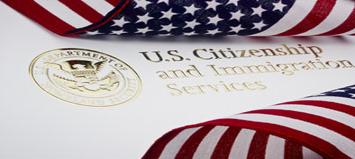

Los Angeles Immigration Attorney Pasadena San Francisco San Diego
Main Office: 1-(888) 485-5208 / (626) 240-4654


| The information you obtain at this site is not, nor is it intended to be, legal advice. You should consult an attorney for advice regarding your individual situation. We invite you to contact us and welcome your calls, Contacting us does not create an attorney-client relationship. Please do not send any confidential information to us until such time as an attorney-client relationship has been established. |
© 2008-2017 Azucena Valencia Law Corporation. All Rights Reserved.
Los Angeles Immigration Attorneys: 1055 E. Colorado Blvd. Suite 500, Pasadena, CA 91106. PH: 626-240-2654
San Francisco Immigration Attorneys: Ph: 1-888-485-5208. San Diego Immigration Attorneys: Ph: 1-888-485-5208

| Immigration Ban Questions & Answers |
On January 27, 2017 President Trump signed an executive order banning immigration from seven predominantly
Muslim countries. These countries are Iran, Iraq, Somalia, Sudan, Syria and Yemen. Below are several questions
and answers related to the executive order we have gathered from U.S. Customs and Border Protection.
If we can be of any assistance please contact us directly.
Q. How is the president allowed to issue this kind of executive order?
A. Congress provided the President with the authority under section 212(f) of the Immigration and Nationality Act
to suspend the entry of any class of aliens he deems detrimental to the interests of the United States. This
authority has been exercised by Presidents for decades, and has been a component of our immigration laws
since the Immigration and Nationality Act of 1952.
Q. Does this executive order apply to green card holders from one of the seven countries listed?
A. Yes - if the green card holder (a Lawful Permanent Resident, or LPR) was out of the country at the time of the
order’s signing, or travels out of the country after the order was signed. However, green card holders are
eligible for national interest waivers consistent with the provisions of the Executive Order. It does not affect
lawful permanent residents who are currently in the country.
Q. So far, how many Lawful Permanent Residents have not been allowed to enter pursuant to the
exception of the executive order?
A. Two. One, who was entered into proceedings based on a criminal record. Another individual chose to return to
Canada and withdrew his request for entry.
Q. So far, how many aliens with special immigrant visas have been denied entry?
A. None
Q. Does this executive order apply to dual nationals of the seven countries who want to enter the
U.S.? If they apply for entry based on their citizenship from one of the countries not on their list,
will they be allowed entry?
A. Yes, but travelers are being treated according to the travel document they present. For example, if they
present a Canadian passport, that is how they are processed for entry.
Q. What do the two exemptions in the executive order mean? How are they applied to individual
cases?
A. DHS and State can review individual cases and grant waivers on a case-by-case basis if that individual's
admission to the United States is deemed to be in the national interest and if they do not pose a national
security threat.
Muslim countries. These countries are Iran, Iraq, Somalia, Sudan, Syria and Yemen. Below are several questions
and answers related to the executive order we have gathered from U.S. Customs and Border Protection.
If we can be of any assistance please contact us directly.
Q. How is the president allowed to issue this kind of executive order?
A. Congress provided the President with the authority under section 212(f) of the Immigration and Nationality Act
to suspend the entry of any class of aliens he deems detrimental to the interests of the United States. This
authority has been exercised by Presidents for decades, and has been a component of our immigration laws
since the Immigration and Nationality Act of 1952.
Q. Does this executive order apply to green card holders from one of the seven countries listed?
A. Yes - if the green card holder (a Lawful Permanent Resident, or LPR) was out of the country at the time of the
order’s signing, or travels out of the country after the order was signed. However, green card holders are
eligible for national interest waivers consistent with the provisions of the Executive Order. It does not affect
lawful permanent residents who are currently in the country.
Q. So far, how many Lawful Permanent Residents have not been allowed to enter pursuant to the
exception of the executive order?
A. Two. One, who was entered into proceedings based on a criminal record. Another individual chose to return to
Canada and withdrew his request for entry.
Q. So far, how many aliens with special immigrant visas have been denied entry?
A. None
Q. Does this executive order apply to dual nationals of the seven countries who want to enter the
U.S.? If they apply for entry based on their citizenship from one of the countries not on their list,
will they be allowed entry?
A. Yes, but travelers are being treated according to the travel document they present. For example, if they
present a Canadian passport, that is how they are processed for entry.
Q. What do the two exemptions in the executive order mean? How are they applied to individual
cases?
A. DHS and State can review individual cases and grant waivers on a case-by-case basis if that individual's
admission to the United States is deemed to be in the national interest and if they do not pose a national
security threat.